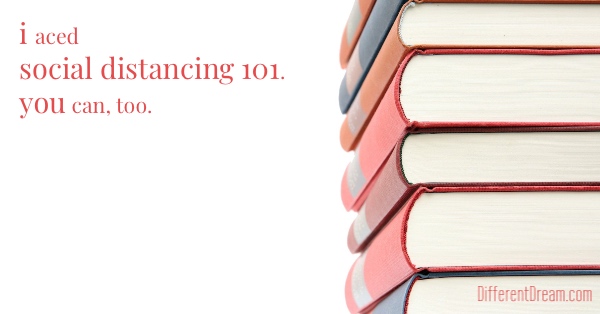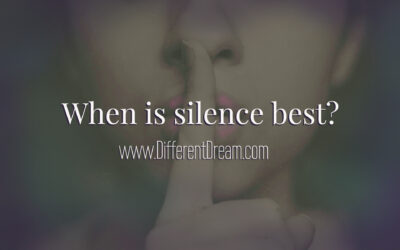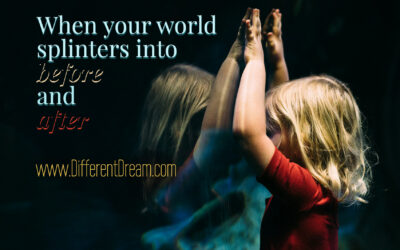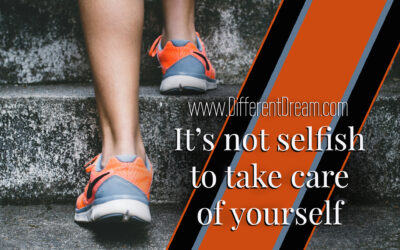Social Distancing 101

Social Distancing 101 is a mandatory class for parents raising kids who are medically-fragile. My husband and I weren’t eager to receive our class syllabus when our baby was born and rushed to surgery before he was a day old. But what choice did we have? To give our newborn son the best opportunity to live, we had to dig into the subject. So dig in we did. Way back in 1982, our Social Distancing 101 class was highly effective. Though our baby had many setbacks during his first year he made it, and he’s still alive. With our entire nation enrolling in Social Distancing 101 by the millions, I’m to passing along 3 lessons that contributed to his successful outcome.
Lesson #1: Limit Visitors and Wash Your Hands
Before we were allowed to visit our baby in neonatal intensive care (NICU) for the first time after his surgery, we were the only visitors he was allowed to have. To further protect his fragile health, we had to spend 5 minutes washing our hands with soap and then betadine antiseptic solution. This routine was strictly enforced throughout his 3 week hospital stay. I didn’t like the rule. I wanted to be with my baby, not standing at a stupid sink washing my hands until they were almost raw. But I did it because the experts said it was the best way to reduce chances of infection, and it was the one thing I could do to help my baby. It worked then. It works now. So limit visitors and wash your hands.
Lesson #2: Keep a Well-Stocked Pantry and Freezer
When our son was released from the hospital, we took him to the remote South Dakota town where we lived. That town was 23 miles from the nearest grocery store and 65 miles from the nearest supermarket. (I’m not making this up.) Our baby’s condition was a roller coaster of heath concerns for over a year. We never knew when the next mad dash to the doctor or a hospital stay would be. But we knew it would happen, and we knew that when it did we couldn’t take him to the store or a restaurant. We developed a habit of keeping our pantry and freezer stocked with at least 2 weeks worth of food. 37 years later the habit remains strong, and we don’t have to hunt for toilet paper when panic buying hits.
Lesson #3: Cultivate Hobbies and Friendships
During our long ago Social Distancing 101 class, our television brought in 2 channels. VCRs were just coming into being. The library was a bookmobile that came around once a month. Our phone was mounted on the wall and had a long cord. Long distance calls were expensive, so we only called family on the weekends when rates were lower. But we kept busy, thanks to hobbies and friendships. My hobbies were reading, sewing, and cooking. My husband’s were yard work, chopping wood, and fix it projects. And even though our town boasted a population of only 92, which made social distancing simple, we had friends. We went to their houses for meals, and they came to ours. We were and still are grateful for their friendships, for their hand washing skills, and for the creative fun times we had. Without hobbies and friends, Social Distancing 101 would have been excruciatingly boring.
Social Distancing 101 wasn’t a class my husband and I wanted to take in 1982. It’s probably not the class you wanted to enroll in during 2020. But let our experience be an encouragement to you. You can do this. You will do it. And these 3 lessons are a good place to start.
Do you like what you see at DifferentDream.com? You can receive more great content by subscribing to the monthly Different Dream newsletter and signing up for the daily RSS feed delivered to your email inbox. You can sign up for both at the bottom of this page.
By Jolene
Jolene Philo is a published author, speaker, wife, and mother of a son with special needs.
Subscribe for Updates from Jolene
Related Posts
The Weight of Silence as Parents of Kids with Invisible Disabilities
Guest blogger Lisa Pelissier explains the weight of silence as parents of kids with invisible disabilities.
Choosing Acceptance and Advocacy as Parents of Kids with Disabilities
Choosing acceptance and advocacy as parents of kids with disabilities can be hard, but it’s necessary to our kids and to ourselves.
Caring for our Bodies to Meet the Needs of Those We Love
Guest blogger Heather Braucher explains how caring for our bodies can meet the needs of those we love as well as our own.






0 Comments